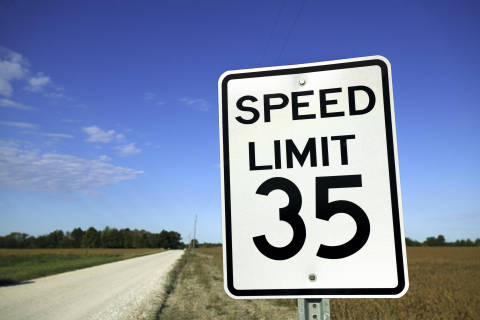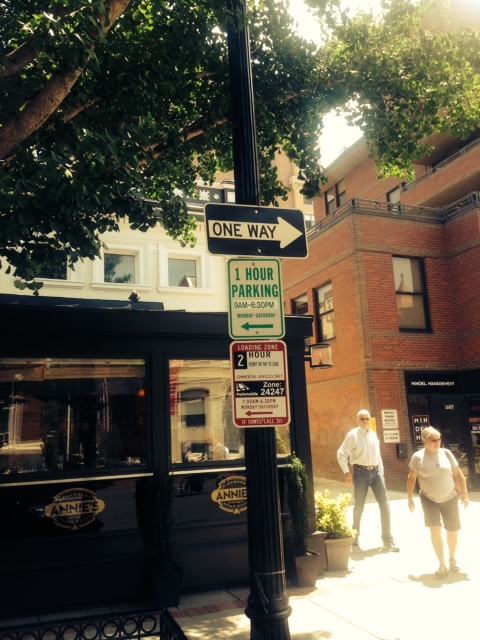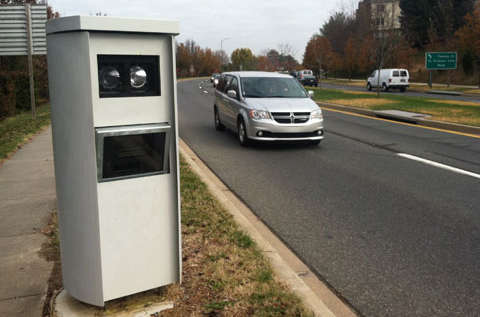WASHINGTON – After two years of fighting to dismiss a parking ticket, a Silver Spring driver has been cleared of the $50 infraction but he intends to continue with a court challenge that calls into question an error in D.C. law.
Daniel Riesenfield received a parking ticket at 7915 Eastern Avenue on the border between Northwest D.C. and Silver Spring, Maryland. The D.C. Department of Public Works cited Riesenfield for parking in front of a fire hydrant. The fine is $50.
Riesenfield challenged the ticket because he thought the ticket was issued in Maryland and therefore the D.C. Department of Public Works had no authority to issue the ticket.
“I’d argue that (the Department of Public Works) has no right to issue an infraction for parking in front of a hydrant that they don’t own,” says Riesenfield.
“I want to make it clear that I parked there by mistake. I would never park in front of a hydrant intentionally. But I felt it was important to challenge it because of the boundary issue, then it grew into issues with the appeals board,” he says.
At 7915 Eastern Avenue, the street and the sidewalks are considered D.C. property. But upon entering a building on the north side of the street, visitors are considered to be in Silver Spring, according to Montgomery County and D.C. officials. However, in this case, the hydrant on the sidewalk belongs to the Washington Suburban Sanitary Commission (WSSC), making it property within the state of Maryland.
An attorney, who agreed to talk under the condition of anonymity, tells WTOP that the city can ticket Riesenfield because the infraction is considered a fire safety hazard. He also points out that the fine is the same for the violation in both D.C. and Montgomery County.
But Riesenfield didn’t stop there.
After losing his case before a D.C. Department of Motor Vehicles hearing examiner and the Traffic Adjudications Appeals Board, he appealed to D.C. Superior Court.
“I started looking into the law and it very clearly states in D.C. Code how members of the appeals board are appointed,” says Riesenfield.
The law governing the composition of the appeals board states:
“The Director shall appoint to each appeals board one employee of the Department of Transportation, one attorney from a list of practicing and willing attorneys submitted by the District of Columbia Bar or, if no such list is submitted, from a list compiled by the Director and one citizen from a list of willing citizens compiled and kept by the Director,” the law reads.
But as Riesenfield points out, the appeals board has a lawyer, a citizen and a member of Department of Motor Vehicles, but no one from DDOT. Weeks after filing his appeal in D.C. Superior Court pointing out this discrepancy, the Office of the Attorney General has dropped his case.
“I don’t think they want to open up what could be a huge can of worms that could have a judge rule that all past rulings from this appeals board must be vacated,” says Riesenfield.
DMV spokeswoman Vanessa Newton disagrees with his analysis and argues that the appeals board decisions are completely legal.
In a statement, Newton says that the law, written in the 1970s, is arcane and that a newer code section supercedes it. The new law transferred adjudications duties to the DMV in 1999. She calls the oversight contained in the code related to the appeals board an “innocent human error.”
She also says that his case was dropped because of the address and location of the infraction was wrong on the ticket.
Riesenfield tells WTOP he does not believe that the address was the reason the Attorney General dismissed his ticket and he wants a judge to rule on the law.
“My suggestion to the D.C. City Council is to take a look at the law that governs the operation of the Traffic Adjudication Appeals Board and take a look at the appointments to the board. They need to fix this problem,” says Riesenfield.







